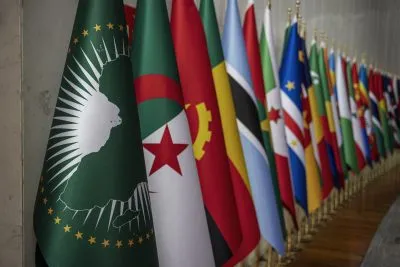As sustainable finance incorporating environmental, social and governance (ESG) factors move up the global policy and regulation agendas, it is an area Africans cannot ignore and should lead on. It’s becoming an essential ingredient for attracting investment – a whopping $31 trillion of funding conformed to ESG/PPP criteria in 2018, and later figures will be even bigger.
It’s increasingly being adopted by pension funds, financial institutions and big investors like BlackRock, and most important governments are nudging investors in the same direction.
The UK government has proposed that £5bn-plus ($7bn-plus) occupational pension schemes will have to disclose climate risks by the end of 2022. The European Commission will be requiring sustainable investment frameworks. While the EU – the biggest, richest single market in the world – doesn’t regulate corporate disclosures itself (that’s done by the 27 individual member states), it regulates financial services and has asked the sector to disclose its ESG footprint.
The devolved Welsh government is a pacesetter with its Well-Being of Future Generations Act, which requires all public bodies (including itself) to factor in the long-term impact of their policy decisions especially on PPP/ESG. That will influence not just its policies, but also its procurement, and impact upon the private sector too.
Global governance and leadership during the Covid-19 pandemic with Lord Peter Hain
China-Africa relations with Jinny Yan, Chief China Economist, ICBC Standard Bank
We have already seen how British government recommendations (rather than legislation) have encouraged marked increases in gender diversity on company boards. Expect that sort of “nudging” towards increased environmental and social governance in the future.
There have been almost daily announcements by global corporates of their net zero emission goals – even Formula One racing has just announced it is moving to a sustainable fuel. Some experts are even suggesting that investor appetite for ESG-related investments will outstrip the availability of ESG-positive assets available in the market.
And with the climate change summit in November this year, and US President Biden announcing he will be there with climate adviser Al Gore – a radical break from the blatant climate change denialism of Donald Trump – there are plenty of reasons for African governments to step up. African governments have a big role to play, and African businesses are well advised to get ahead of the curve.
Global flows into ESG assets
The trends are reflected in the sheer enormity of global capital flowing into sustainable assets. The US SIF Foundation’s Report on US Sustainable and Impact Investing Trends 2020 reveals that total US-domiciled assets under management using sustainable investing strategies grew from $12 trillion at the start of 2018 to $17.1 trillion at the start of 2020, an increase of 42%.
Meanwhile, Moody’s ESG Global update on 3 February reported that major economies are integrating their pandemic recovery efforts with carbon emissions reduction. This means the impact of ESG issues in financial markets will accelerate in 2021 as the effect of government stimulus, decarbonisation policies and greater disclosure requirements overlap.
The increased interest in ESG from US and global investors will mean higher levels of regulation and due diligence for fund managers seeking to raise capital from these investors.
For African countries, this could mean a huge boom in impact investing from development finance institutions and institutional investors globally, as they aim to meet their ESG and Sustainable Development Goals targets through strategic investments.
ESG on the Belt and Road
Research from ICBC Standard Bank shows there is still a capacity deficit towards the sustainable agenda, but that African countries in the Belt and Road Initiative (BRI) can be supported towards these goals by engagement with China.
Given China’s continued signalling that it intends to be prominent in the policy and political conversation in the Global South, its leadership on ESG is particularly important in the global economy as it drives the recovery from Covid-19. China has long been a leader in sustainable finance and has been key in developing the international fundamental frameworks. Key in this strategy is incorporating the countries and projects in its Belt and Road Initiative.
ICBC Standard Bank has developed the Belt and Road Green Finance (BGRF) Investment Index to measure sustainable capacity and the potential for engagement. The BGRF measures the green economic performance and green development capability of 79 countries along the Belt and Road.
The results show that there is tremendous variation in green performance capacity between countries along the Belt and Road, with the lowest capacity in sub-Saharan Africa. Pressure on the environment for resources and for future growth is particularly significant.
Economies in the Middle East and North Africa as a whole have high scores, but the report notes this may be related to their resource endowments and unique economic structures, whereas countries in sub-Saharan Africa scored lower on climate change and environmental efficiency sub-indicators of green economic performance.
In order to cope with these challenges, the report recommends countries tailor individual green development strategies according to their resource endowments and capacities for future development. Financial institutions should therefore actively develop green concepts and responsible investments, and lead capital flows toward green industries and green projects through innovation.
The push for ESG is also increasingly influencing capital allocations on the African continent. The African Exchanges Linkage Project, a joint initiative by the African Securities Exchanges Association (ASEA) and the African Development Bank to unlock pan-African investment flows, promote innovation and address depth and liquidity in Africa’s capital markets, surveyed 50 African asset managers on the continent.
Nine out of 10 of the fund managers surveyed consider market regulation (91%) and the availability of market data and prices (90%) as key factors in driving their investment flows into the continent.
The survey, released at the end of 2020, found governance, good regulation and the availability of market data and trading information play fundamental roles in the investment decision-making of African fund managers when investing into African capital markets. If those metrics can be improved, there will be even more scope for transformative ESG investments.
This article is adapted from IC Intelligence Insight 02 – Global ESG Update. Access the full report online.
Lord Peter Hain is a former anti-apartheid leader, UK cabinet minister and the chair of IC Intelligence. Dr Desné Masie is the chief strategist at IC Intelligence.
Want to continue reading? Subscribe today.
You've read all your free articles for this month! Subscribe now to enjoy full access to our content.
Digital Monthly
£8.00 / month
Receive full unlimited access to our articles, opinions, podcasts and more.
Digital Yearly
£70.00 / year
Our best value offer - save £26 and gain access to all of our digital content for an entire year!
 Sign in with Google
Sign in with Google 



